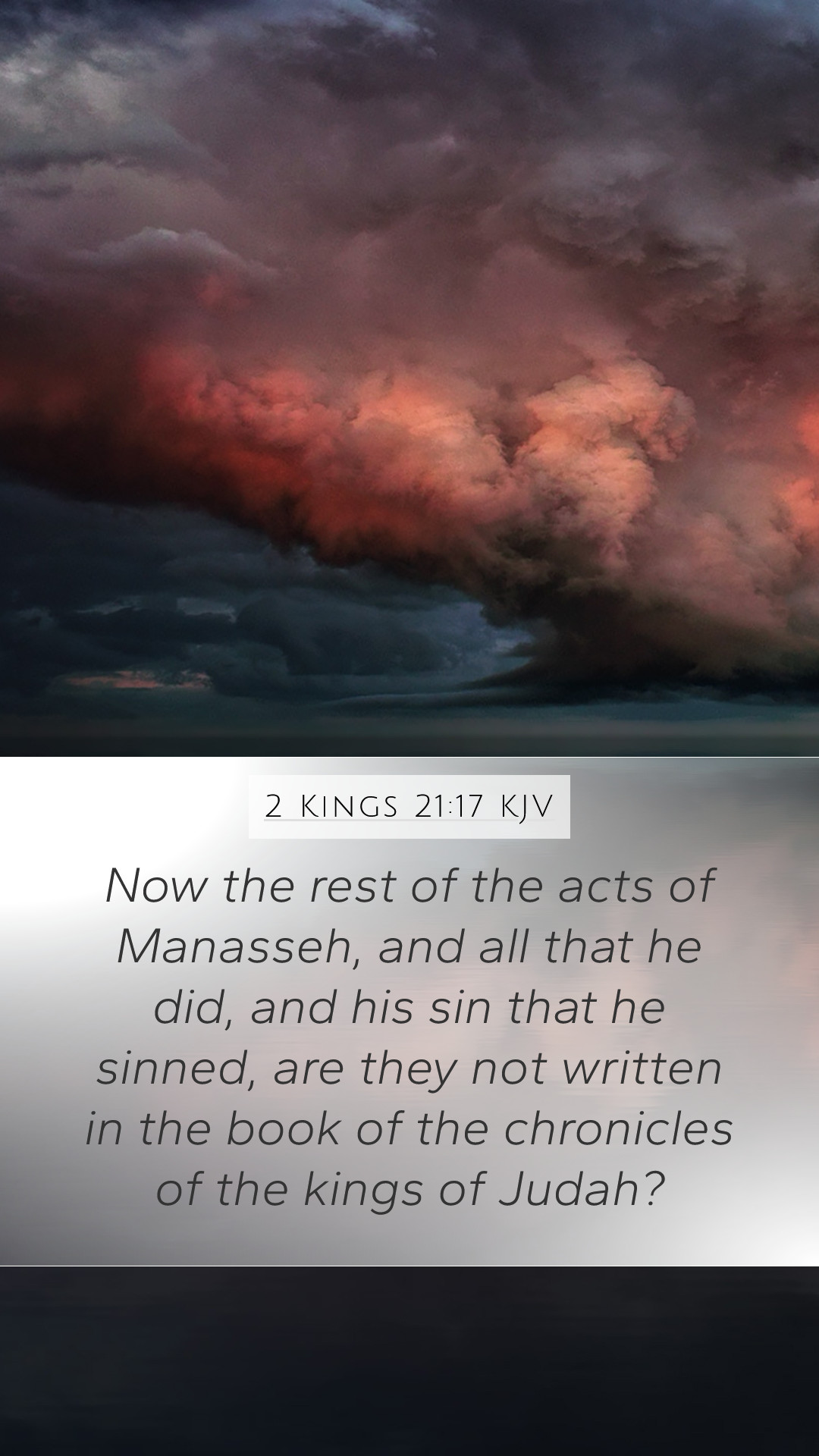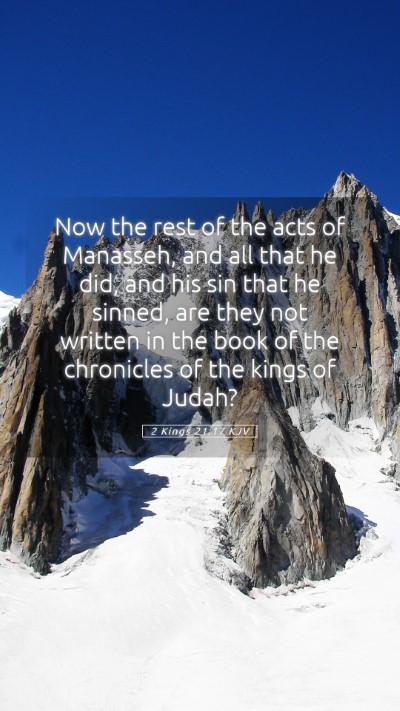Bible Verse Meaning: 2 Kings 21:17
Verse: "And the rest of the acts of Manasseh, and all that he did, and his sin that he sinned, are they not written in the book of the chronicles of the kings of Judah?" (2 Kings 21:17)
Understanding 2 Kings 21:17
This verse serves as a conclusion to the account of Manasseh, a king of Judah known for his deeply sinful practices and idolatries. It invites readers to explore a broader narrative about the reign of Manasseh, emphasizing the availability of additional accounts in the "book of the chronicles of the kings of Judah."
Key Themes and Insights
- The Historical Context: The verse sheds light on the historical and spiritual context of Judah during Manasseh's reign, which was characterized by significant rebellion against the Lord.
- Sin and Its Implications: Manasseh's sins are particularly noted for leading the nation away from Yahweh, showcasing the seriousness of idolatry in ancient Israel.
- Importance of Documentation: The reference to the "book of the chronicles" indicates the practice of documenting the actions and sins of leaders, which serves both a historical and moral purpose.
Biblical Exegesis: Insights from Commentaries
Various commentaries provide further insights into this verse:
Matthew Henry's Commentary
Henry emphasizes Manasseh's extreme wickedness and its consequences for Judah. He highlights that despite the wide scope of Manasseh's deeds, a comprehensive understanding of his actions can be found in the chronicles, suggesting an exhaustive record of sin that caused national calamity.
Albert Barnes' Notes
Barnes notes that the verse encapsulates the sinful legacy of Manasseh, indicating that the nation suffered greatly under his rule. He points out that the chronicler aimed to remind future generations of the consequences of turning away from God.
Adam Clarke's Commentary
Clarke discusses the significance of Manasseh's actions in leading others astray. He also points out how the chronicler’s reference of these acts serves not only as a historical reminder but also as a moral lesson for later generations about fidelity to God's covenant.
Application of the Verse in Daily Life
This verse provides a critical lesson about leadership and moral responsibility. Understanding Scripture reveals that a leader’s actions can have profound implications for their community. It calls readers to reflect on their choices and their ripple effects on others.
Theological Implications
From a theological standpoint, this verse reinforces the notion that sin has serious repercussions not only for individuals but also for the broader society. The continual mention of documentation of deeds serves as a reminder that our lives are observed and recorded from a divine perspective.
Additional Bible Cross References
- 2 Chronicles 33:12-13: The account of Manasseh’s repentance and restoration.
- Jeremiah 15:4: A reference to the judgment upon Judah due to Manasseh’s actions.
- Isaiah 1:4: A lament about the sinful nature of Judah following Manasseh's reign.
Conclusion
In summary, 2 Kings 21:17 invites deep reflection on the nature of sin, the weight of leadership, and the chronicling of history as a moral record. The commentary provided by respected biblical scholars offers profound insights into understanding this passage, making it a vital study for those interested in biblical exegesis, commentary, and scriptural analysis.


